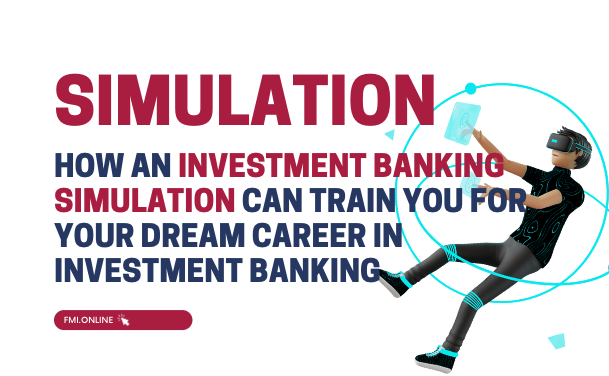How an investment banking simulation can train you for your dream career in investment banking
Investment banking is a complex field; graduates and fresh recruits are often told that they would gradually learn by doing things. Investment banking simulations allow an individual to learn by trying different things at their own pace and time. A simulation is any model that replicates the real world or a particular situation, to deliver a specific experience in a controlled environment. In this article, we will explore how an investment banking simulation can train you for your dream career.
Problem-Solving
Investment banking requires creative problem solving but at the same time when transactions are in millions, small mistakes can be costly. Aspiring investment bankers can use simulations to test their decision-making skills in a given real-life situation.
With hundreds of variables influencing each decision, simulations are optimal for investment banking. Providing a safe and controlled environment allows young investment bankers to adapt to creative problem-solving and experiment with different approaches. It further enables them to reflect on their actions, build confidence based on the results, or take feedback for improvement.
Simulations can prepare candidates to answer case study questions asked during the investment banking interviews, since they are required to act as a decision maker, evaluate variables, and draw conclusions. To put things in perspective, imagine being the M&A head of a top global investment bank, in the middle of the global financial crisis, being asked to decide on acquiring one of the rival investment banks. Hard, right? You can be part of situations like this with this M&A simulation, for example, which not only helps you develop vital skills but also evaluate your own decisions.
Skill development
Simulations not only help candidates understand the job role, but also enables them to develop the necessary skills. With simulation like this on investment management, you would get an opportunity to create your portfolio, conduct equity research, work on stock allocation and of course, manage risk.
Working as a fresh investment banker in a dynamic market environment might overwhelm you with an overload of information and new concepts, making learning difficult. Moreover, since a small mistake could incur huge losses you might not get a chance to be part of key decisions in the initial years of your career. However, in a simulated environment, the real world is replicated and includes multiple attempts. This makes the learning process fun and you can take risks, which as a real investment banker may be difficult to do. As a result, you can trust your judgement and build the traits that are required in the industry.
Better understanding of the job role
Aspiring investment bankers often make wrong career choices because of limited information about the job role. Although investment banking job profiles include a comprehensive job description, it is hard for fresh graduates to imagine the responsibilities that come with the role and the level of commitment required to fulfil those responsibilities by reading a piece of paper.
Simulations can help investment bankers understand the job role in a much more effective way. The individual not only understands their duties but can also experience vital factors that result in job satisfaction, such as is the work repetitive in nature, does it involve a lot of reading, does it require deep communication with team members, etc.
Simulations further aid the investment banking candidate during job interviews, where recruiters often test a candidate’s understanding of the job role. If you have experienced an investment banking division’s work through a simulation, you will have a better answer around the topic since you were involved in the job and have experienced the work.
Conclusion
Simulations, which replicate real-world situations, are a great way of both learning and knowing yourself, which further allows you to make rational decisions. Learning through simulations is like net practice in investment banking. Aspiring investment bankers can develop problem-solving skills, gain confidence, learn to evaluate different components that drive the economy and more importantly make the right career choices, one that suits their personality and skill sets.









